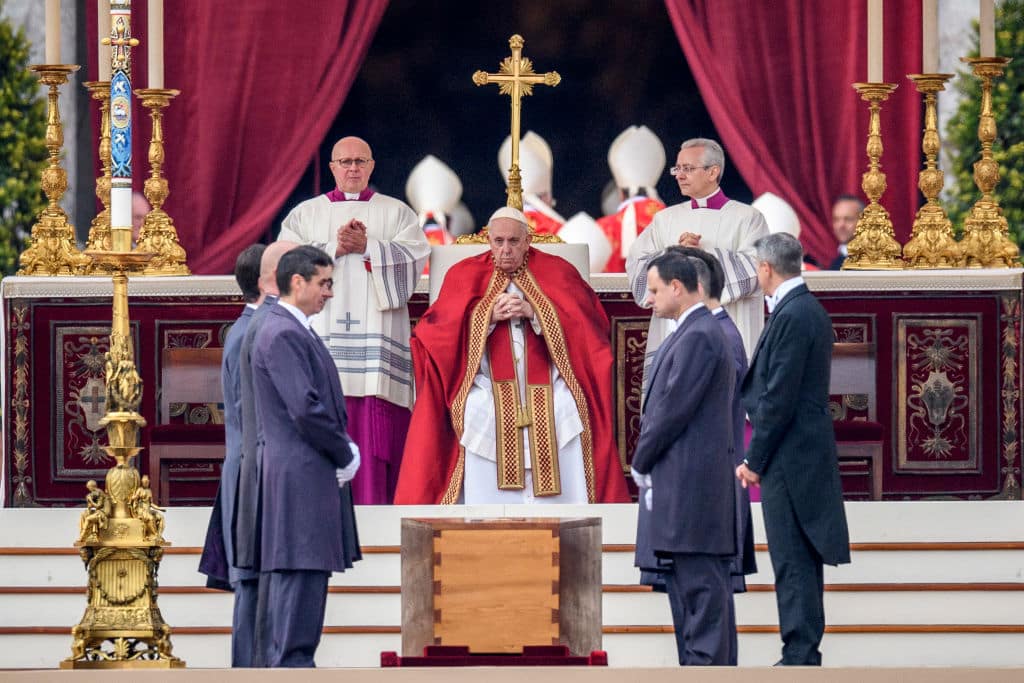I have heard it said that every funeral, whatever the scale and whatever the setting, ought to be in some sense a confrontation with death. Modern secular funerals increasingly dodge that confrontation, with growing trends for bright colours, upbeat songs and relaxed dress codes. Jokes and light-hearted eulogies are the order of the day. The awful looming mystery is pushed to one side. Even some churches now acquiesce in these kinds of diversionary ceremonies.
As Christians, we need to retain the idea of the funeral as a serious and weighty reckoning with the unavoidable truth that we will all die, and face God. The Catholic requiem Mass is an extended prayer for mercy for the departed, and a recognition of our own need for that same mercy. There is a magnificent sixteenth century choral piece, by John Sheppard, called <em>Media vita in morte sumus</em>, which means “in the midst of life we are in death”. We may live rather longer than our ancestors, with less likelihood of a sudden departure through violence, accident or disease, but we are not immortal. “Man that is born of a woman hath but a short time…He cometh up, and is cut down, like a flower; he fleeth as it were a shadow,” as the Church of England’s Book of Common Prayer has it.
Last week’s Requiem Mass for Pope emeritus Benedict, celebrated by Francis at the Vatican in front of large crowds, was a powerful reminder of this fact. I saw a lot of comments on social media about how even secular people found the obsequies inspiring and even challenging. I wonder whether this is reflective of an inchoate but real nostalgia among modern folk for more ritualised and impressive funeral rites.
A similar attitude was on display back in September at the time of Queen Elizabeth’s funeral. Apparently, billions of people from all over the world tuned in to watch the ceremony. Many of them, no doubt, were drawn by curiosity or the prospect of a good old-fashioned parade with marching bands and smart dragoons. But others, perhaps, wanted to get a glimpse of a way of mourning and marking death that is vanishing from the world; stately, sombre, and liturgical. Starved of those things in the majority of the “real-life” funerals they attend, they seek them in grand occasions.
Ours may be an age of unbelief, but all the same, I suggest that people still in some sense see the blend of real, hard lament and genuine hopefulness that marks Christian funerals as a more psychologically satisfactory reckoning with death. Importantly, this psychological satisfaction does not stem from wishful thinking – as atheists would claim – but from the underlying truth of the faith. Christian funerals are attractive because they reflect the deep reality of things.



